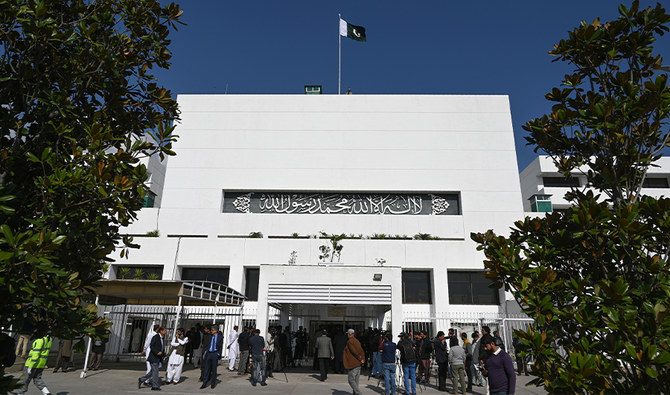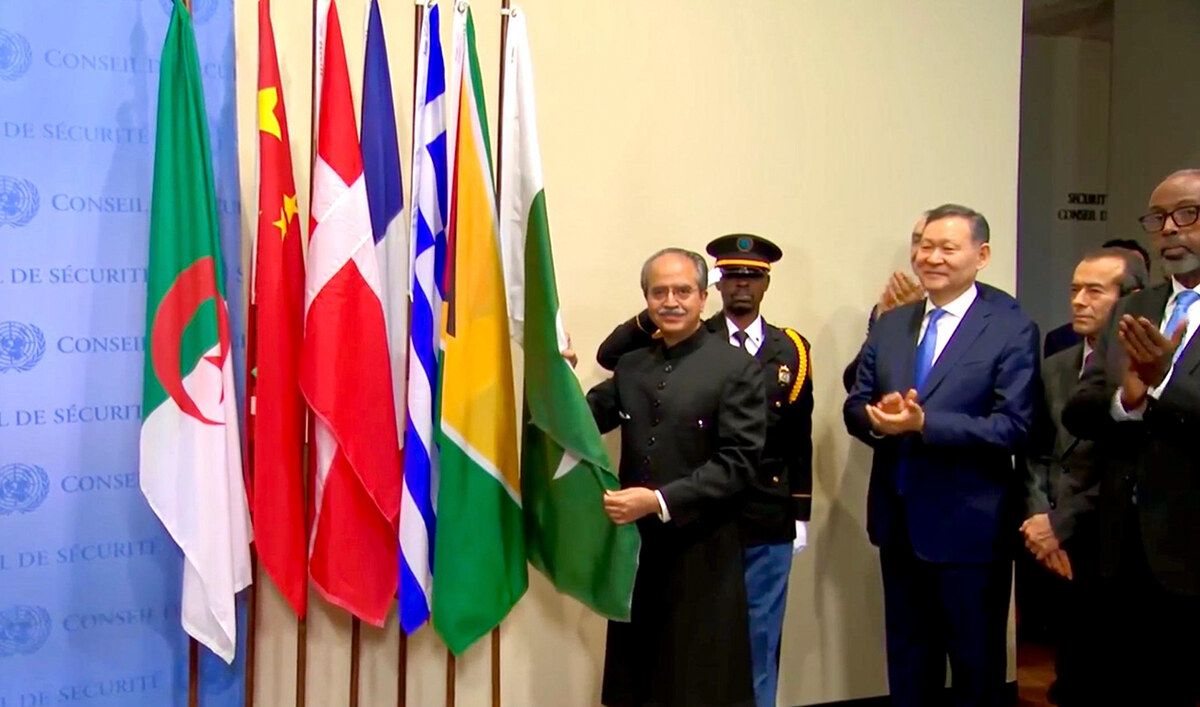ISLAMABAD: Legal experts in Pakistan are divided on the procedure to elect a new prime minister in the event that a no-confidence motion filed against Prime Minister Imran Khan prevails, with some suggesting the constitution was “silent” over the matter while others arguing the success of the vote would not spark a political crisis.
The opposition submitted a no-confidence motion against Khan on March 8, generating a flurry of political activity, including the announcement by over 12 lawmakers from the ruling Pakistan Tehreek-e-Insaf (PTI) party that they would vote against the PM, and public criticism of the government by its coalition partners.
The current Pakistani prime minister is the third in the country’s history to face a no-confidence vote. The two earlier moves against Benazir Bhutto and Shaukat Aziz were defeated.
Legal experts said electing a new prime minister immediately could become "cumbersome" if the National Assembly speaker prorogued the session after the sitting leader of the house was voted out.
“Once the office of the prime minister falls vacant, the assembly has to elect a new leader by simple majority,” Advocate Maria Farooq told Arab News. “This needs to be done to the exclusion of any other business of the house, thereby highlighting the need for immediate action. However, the constitution and the rules are silent as to what happens if the speaker discontinues the assembly session, which is perfectly within his powers, after the PM is voted out.”
She said such a situation could “potentially lead to a long vacancy,” adding that a new prime minister would have to be elected as soon as the next session began.
Asked what would happen to the prime minister’s cabinet if the no-trust motion prevailed, Farooq said it would automatically dissolve as per the rules of procedure of 2007 read in conjunction with the constitution. The president could exercise the cabinet’s functions in such a situation, she added.
However, the president no longer had the power to dissolve the assembly on his own and could only take that decision on the advice of the prime minister under Article 58.
The article further reads that the "National Assembly shall, unless sooner dissolved, stand dissolved at the expiration of forty-eight hours after the Prime Minister has so advised.”
However, under the constitution, this provision does not apply to a prime minister facing a no-confidence motion or one who has been defeated by it.
Discussing the ongoing political situation and its legal ramifications, Rizwan Abbasi, a Supreme Court lawyer, agreed that the constitution was silent on the new prime minister’s election procedure and timeframe following a no-confidence defeat, though he said the parliament’s rules of business said the National Assembly would elect a new leader as the first business of the day after it convened again.
Abbasi said the president could dissolve the assembly and make way for new elections under Article 58 (2) if none of the National Assembly members could secure the required numbers to become the next prime minister.
However, high court advocate Sharafat Ali said the National Assembly’s rules of business were “very clear” regarding the prime minister’s election and the same rules would apply again in case the leader of the house was voted out through a no-confidence motion.
He also said the president could dissolve the National Assembly for fresh elections in case no member had a simple majority to form the government.
“The National Assembly speaker is bound to follow the rules to allow the election of a new prime minister,” Ali told Arab News. “There will not be any constitutional or legal crisis surrounding the election of a new prime minister.”


















